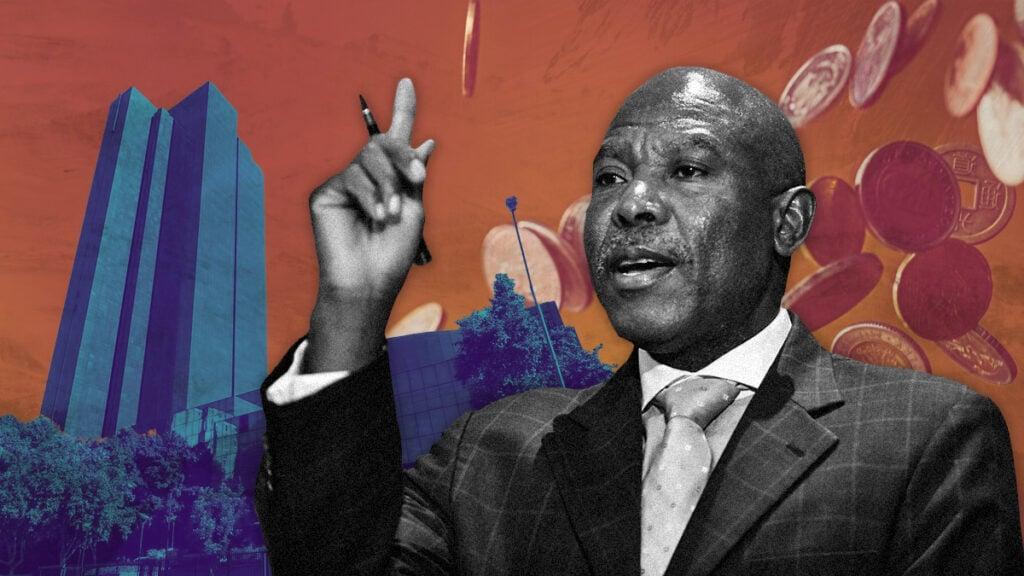Africa-Press – South-Africa. Reserve Bank Governor Lesetja Kganyago said if South Africa fails to find alternative measures in the wake of higher tariffs from the United States, the country could lose around 100,000 jobs, particularly in the automotive and agricultural sectors.
In an interview with 702, Kganyago outlined the expected impact of the United States’ higher tariffs on South Africa’s economy.
This comes as South African goods imported to the United States are expected to be hit with 30% tariffs at the start of August 2025.
While President Cyril Ramaphosa has said there may be some room for lower tariffs, this is not yet certain.
Since the start of 2025, the Reserve Bank’s Monetary Policy Committee (MPC) has reviewed the potential impact of changes in global trade on South Africa’s economy.
In January, the MPC’s scenario was based on a universal increase of 10 percentage points in US tariffs, with retaliatory measures by other countries.
This scenario showed higher inflation and interest rates globally, as well as greater risk aversion in financial markets.
This model projected the rand depreciating to nearly R21 to the dollar, with domestic inflation reaching 5% and the policy rate, at its peak, half a percentage point higher than the baseline forecasts.
In March, the MPC explored the potential impact of South Africa losing its benefits under the African Growth and Opportunity Act (AGOA).
The AGOA is a preferential trade agreement between the United States and various African countries that allows these nations to export certain goods to the US duty-free.
South Africa has participated in the program since its inception in 2000 and is one of its largest beneficiaries.
However, the imposition of higher tariffs and a worsening diplomatic relationship between South Africa and the United States are threatening the country’s continued inclusion in the AGOA.
The MPC’s modelling showed that if South Africa were to lose its AGOA benefits, exports would weaken, and growth would be slightly lower.
“If that were compounded with tariffs on South African exports, the effects would be larger,” Kganyago said.
The most severe scenario the MPC considered added a sentiment shock, with a weaker rand, higher domestic inflation and therefore a tighter policy stance.
In this scenario, growth would be lower by 0.7 percentage points, with the exchange rate depreciation offsetting some of the tariff effects on exports.
“In a difficult global environment, it is vital to sustain domestic reforms that boost growth, while preserving macroeconomic stability,” the governor said.
Two industries at risk
Reserve Bank Governor Lesetja Kganyago
In an interview with 702, Kganyago explained that the two industries most at risk from the United States’ higher tariffs, which are likely to result in the biggest job losses, are the automotive and agricultural sectors.
South Africa’s automotive exports to the United States have already plummeted by 82% in the first half of 2025 compared to the same period last year.
This is primarily attributable to the imposition of 25% tariffs on all automotive components imported into the United States.
The automotive sector is vital to South Africa’s economy. It supports over 100,000 jobs and generates significant foreign exchange from manufactured goods.
Therefore, Kganyago said the potential impact of higher tariffs on this sector is “very concerning”.
He said that not all motor vehicle manufacturers in South Africa will be significantly impacted by the tariffs, but manufacturers with a significant exposure to the United States will.
This comes as the industry is already struggling amid pressure from cheaper Asian imports and the continuation of a buying-down trend among South African motorists.
Kganyago highlighted agriculture as the second sector, stating that the impact of U.S. tariffs on this industry would be “devastating.”
The agriculture sector is a significant exporter of goods in South Africa. According to Trade Map, agricultural exports reached a new record of $13.7 billion in 2024, up 3% from the previous year.
The Americans accounted for 6% of South Africa’s agricultural exports in 2024.
However, Kganyago said this sector not only risks lower exports but could also see significant job losses under higher US tariffs.
This is because the agriculture sector is one of the country’s largest employers and employs many low-skilled workers who often cannot find jobs in other sectors.
“By some measures, if we do not find alternative measures, the impact on jobs could be around 100,000,” Kganyago warned.
For More News And Analysis About South-Africa Follow Africa-Press






